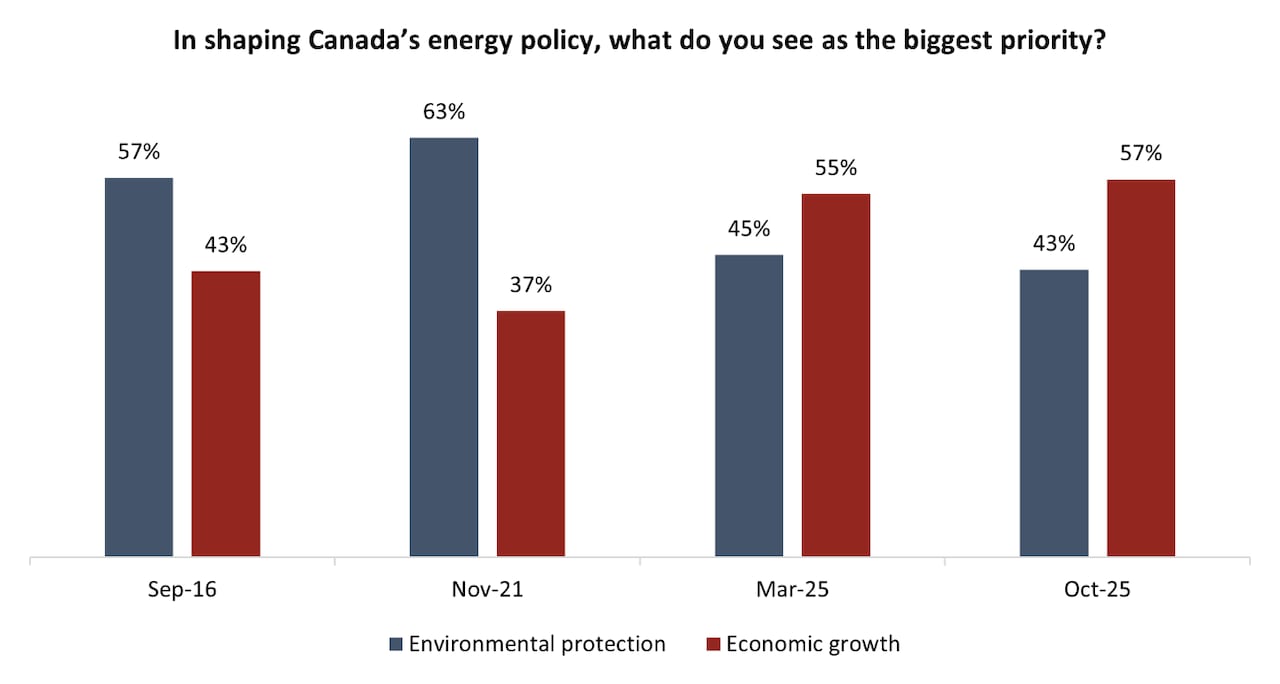A new poll from the Angus Reid Institute suggests a majority of Canadians — including British Columbians — support the idea of a northern Alberta-B.C. pipeline, but fewer agree the project should be fast-tracked.
Overall, 59 per cent of respondents across Canada indicated they “support” or “strongly support” a pipeline, with Albertans showing the most support at 78 per cent.
And while B.C. Premier David Eby has been staunchly opposed to the pipeline proposal, the poll shows 56 per cent of British Columbians support the idea.
The poll comes as Eby and Alberta Premier Danielle Smith have engaged in a back-and-forth over Smith’s proposal for a new bitumen pipeline, announced last week.
The province plans to develop and submit a formal application to the federal Major Projects Office, committing $14 million to the proposal and acting as the proponent.
Eby has called the proposed pipeline “un-Canadian” and “unconstitutional” and cited concerns over Alberta being the sole proponent and Ottawa’s oil tanker restrictions implemented in 2019 in B.C.’s northern waters
The poll showed Canadians are a bit more resistant to the idea of “fast-tracking” the pipeline project than to the project itself, with 55 per cent of Canadians indicating support.
Jon Roe, a research associate with the Angus Reid Institute, says “Canadians are in support of this project, but I think they want to make sure that certain hoops [like] environmental protections [including those in consultation with Indigenous peoples] … aren’t ignored as we’re moving this project forward.”
The poll found that 46 per cent of Canadians — and 52 per cent of British Columbians — say any province whose land a pipeline is built on should have veto rights unless its conditions are met.
Trump factor shifting Canadian priorities
Richard Masson, executive fellow at the University of Calgary’s School of Public Policy and former CEO of the Alberta Petroleum Marketing Commission, said the poll may reflect how Canadians are feeling since President Donald Trump rocked Canada’s relationship with the U.S.
“People are starting to say we need to be able to take care of ourselves and we need to do the things that we can do within our country to manage our relationships with the rest of the world,” he said. “And selling products that we can produce is a part of that.”
In a 2021 Angus Reid poll, 63 per cent of Canadians said environmental protection should be prioritized over economic growth.

Now, the recent poll shows 57 per cent of Canadians say economic growth is the more important factor.
“I think as we’ve seen the circumstances change and … especially with U.S. President Donald Trump coming in and these threats about tariffs and annexing Canada, it means they’re more likely to look at economic growth as being the more important factor than environmental protection,” Roe said.
Tanker ban challenge
Nearly half of Canadians either want the federal government’s oil tanker ban repealed (23 per cent) or excused for the northern B.C. pipeline project (26 per cent). Nearly 30 per cent of Canadians want to keep the tanker ban in place.
In B.C, 44 per cent lean towards opening the province’s northern coast to tanker traffic either entirely or at least for this project.
Smith has previously said she made her position on the oil tanker restrictions “abundantly clear” to Prime Minister Mark Carney and is “optimistic” that Ottawa will revise the law.
Last week, Canada’s Energy Minister Tim Hodgson dismissed questions on whether or not Ottawa would repeal the tanker ban, saying “it’s a hypothetical question right now because there is no project before us.”
“The fear that a pipeline is going to cause all kinds of havoc is probably a little bit less than it might have been before [the Trans Mountain] pipeline was built because people recognize, yeah, we built it safely,” Masson said.
“It’s operating just like it was promised. And the tankers, same as any other ship, are following the rules.”
Hodgson said Thursday that Alberta will need to get the approval of the B.C. government and affected Indigenous communities in order for the project to proceed.
Whether or not the public sentiment for a pipeline sways the B.C. premier remains to be seen.
“Part of the challenge with pipelines is they become symbols and wedge issues for different parts of the political spectrum,” Masson said.
“The Democrats and the Republicans in the U.S. used Keystone XL as a political football and canceled Keystone XL twice after it was approved.
“What we need to do as a country is really understand what are the risks and rewards of building a pipeline.”






